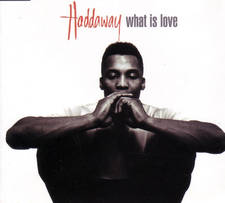MMR Campaign
There are not enough children in Northamptonshire vaccinated against MMR for it to work at its most effective rate, according to the local NHS.
Parents of young teens and children are now being told to get both parts of the vacinne.
Marie McLoughlin, Specialist in Public Health at NHS Northamptonshire told heart "Measles, Mumps and Rubella are three potentially fatal viral infections and there are young people in Northamptonshire who are vulnerable to these diseases today because they don't have the protection of an MMR vaccination".
Marie added "Some years ago there were many stories in the media linking MMR with autism. These caused some parents to delay their child's MMR immunisation, not to have it at all or to choose to have the vaccinations individually, resulting in outbreaks of measles. However, independent experts from around the world have found no credible scientific evidence for such a link.
The number of children catching measles and mumps is rising and can be life threatening or cause serious illnesses. The aim of the MMR public health pharmacy campaign is to raise the public's awareness of the importance to children of having two MMR vaccines overall to ensure adequate protection. Babies aged 13 months are offered the first, and then called in between 3 years 4 months to 4 years of age for their second MMR vaccine".
WHAT YOU NEED TO KNOW
1. MMR immunisation is the safest way that parents can protect their children against measles, mumps and rubella - diseases that can be serious for babies, young children and their families.
2. Over 500 million doses of MMR have been used in over 90 countries around the world since the early 1970s. The World Health Organization states that MMR is a highly effective vaccine with an outstanding safety record.
3. No country in the world recommends giving MMR vaccine as three separate injections.
4. Children who are not immunised with MMR increase the chance that others will get the diseases. Before MMR, pregnant women would catch rubella from their own children.
5. The evidence is that MMR vaccine does not cause autism or inflammatory bowel disease. There are now numerous studies that do not support a link between autism and IBD and the MMR vaccine.
6. The Wakefield et al study published in the Lancet in 1998 actually said 'We did not prove an association between MMR vaccine and the syndrome described' and none of the studies since have found a link. Berelowitz, one of the contributors to the Wakefield study, has subsequently said 'I am certainly not aware of any convincing evidence for the hypothesis of a link between MMR and autism...'
7. Single vaccines in place of MMR put children and their families at increased and unnecessary risk. The combined vaccine is safer as it reduces the risk of children catching the diseases while they are waiting for full immunisation cover.
8. The normal procedure for licensing was used for MMR and the vaccine was thoroughly tested before being introduced into the UK in 1988.
9. Two doses of MMR vaccine are needed to give children the best protection before they go to school. Ninety per cent of those who did not respond to the first dose are protected by the second. Those with low antibodies after the first dose will be boosted.
10. There are very few children who have a true contraindication to having the MMR vaccine.
